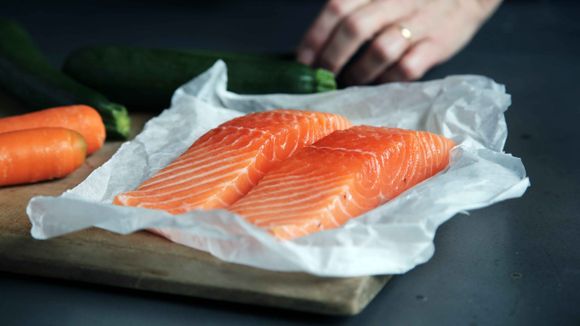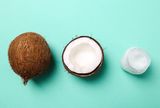Nutritional facts about salmon
The nutritional value of salmon may vary slightly between different species. For example, farmed artificial salmon contains slightly more healthy fats and calories, while wildly caught salmon is slightly higher in protein. However, both species are great sources of many key nutrients, including selenium, phosphorus, and B vitamins, which are fundamental to the health of the nervous, cerebral, muscular, and reproductive systems in the human body.
Let's see the nutritional value of a portion of 100 grams of boiled salmon, respectively, for wild or artificially grown [ref. 1]
- Calories - 180 to 210 approximately
- Protein - 25 and 22 grams
- Fat - 8 grams and 12 grams
- Vitamin - B12 127% of the daily value (DV) and 117% of DV
- Vitamin B6 - 56% of DV and 38% of DV
- Selenium - 85% of DV75% of DV
- Niacin - 63% of DV and 50% of DV
- Pantothenic acid - 38% of DV and 30% of DV
- Thiamine - 23% of DV and 28% of DV
- Phosphorus - 21% of DV and 20% of DV
As a great source of omega-3 fatty acids, a type of heart-healthy fat, salmon helps reduce inflammation and works in favor of cognitive function. [ref. 2]
Salmon is also rich in vitamin B12, which is necessary for the production of red blood cells and regulation of central nervous system health, as well as selenium, which contributes to hormonal balance and thyroid function. [ref. 3]
Health benefits provided by salmon
Rich in omega-3 fatty acids
Salmon is one of the best sources of long-chain omega-3 fatty acids eicosapentaenoic acid (EPA) and docosahexaenoic acid (DHA). A serving of 100 grams of artificially grown salmon contains 2.3 grams of long-chain omega-3 fatty acids, while the same portion of wild salmon contains 2.2 grams.
The EPA and DHA are attributed to a large number of impressive health benefits, such as reducing inflammation, lowering blood pressure, reducing cancer risk, and improving the function of the cells that cover your arteries. [ [ref. 4] This is another serious reason to include salmon in your diet right now in order to have prevention of related diseases [ref. 5]
A great source of protein
Salmon is rich in high-quality protein, which is extremely important for healing after injury, protects bone health, and maintains muscle mass during weight loss, as well as with age [ref. 6]
Like omega-3 fats, protein is basically a nutrient you need to get from your diet, and salmon is a great source of it.
Salmon is high in B vitamins
Salmon is an excellent source of vitamins B6, niacin, vitamin B12, riboflavin, thiamine and folic acid. These vitamins are involved in several important processes in your body, including converting the food you eat into energy, creating and restoring DNA and reducing chronic inflammation that can lead to disease. [Ref. 7]










